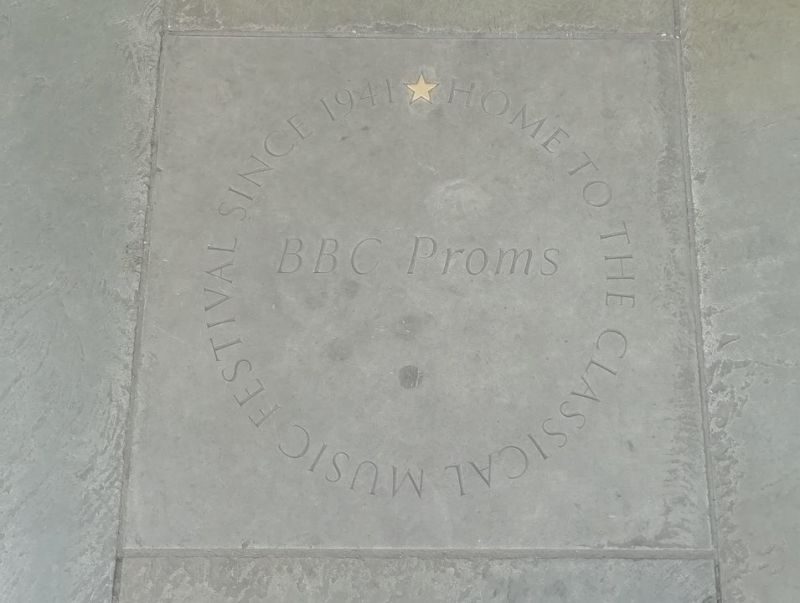V for Victory
Sep. 14th, 2019 02:06 pmWe've been lucky in recent months with ballots for BBC radio recordings, having previously gone to watch The News Quiz being recorded on the night of the European elections, and an episode of Dead Ringers a month later. On Thursday evening we were again in the BBC Radio Theatre for a recording of The News Quiz.
It's been another interesting week, but apart from Brexit, proroguing, and the Speaker standing down, there have been other news stories, including a BA strike and a crime-fighting seal. Francis Wheen, Susan Calman, Felicity Ward and Glenn Moore formed the panel, with guest host Patrick Kielty. Somewhere on a BBC cutting room floor, there exists a recording of news reader Susan Rae instructing Kielty to "tell them the scrotum joke".
On Friday I headed to my final Prom of the season. The queuing in the morning was a bit chaotic; as it was the penultimate concert, there were already people queueing for the Last Night, and it took longer than usual to get the queueing ticket. Things had sorted themselves out when I returned in the evening, for a Beethoven Night. I found myself five or six rows back.
The NDR Radio Philharmonic Orchestra and conductor Andrew Manze began with Handel, however; the Music for the Royal Fireworks. It struck me that I am so used to hearing this kind of music on period instruments, that this performance of a modern symphony orchestra sounded unusual, and perhaps lacked some of the raw edge I had come to expect. But the next piece, Beethoven's Ah! perfido, sung by Elizabeth Watts, sounded right, even though it also must have been performed originally with a smaller orchestra. The final piece of the first half was a Bach-Elgar orchestration, the Fantasia and Fugue in G Minor BWV537. It seemed to start a little slowly, but built up as it went on.
The second half was an all-Beethoven affair, beginning with the overture to Fidelio and followed by another aria, Abscheulicher! … Komm, Hoffnung, lass den letzten Stern. The programme finished with the Symphony No. 5. Traditionally, the ninth was played at the penultimate concert of the season, but that was set aside some years ago. Of course, the fifth is one of the pieces that everyone recognises and it's difficult to say anything distinctive. Of course, in the context of Brexit, everything must be viewed through the lens of the Second World War, in which the four note opening motif was taken by the Allies as representing the Morse code letter V. It was a good performance; the third movement always triggers a memory of the film of Howards End, where it features in a rainy scene outside Oxford Town Hall; and the transition to the fourth movement, bursting into C Major, surely records what "sunlit uplands" are supposed to look like. There was a Handel encore, but I couldn't tell exactly what it was.
It's been another interesting week, but apart from Brexit, proroguing, and the Speaker standing down, there have been other news stories, including a BA strike and a crime-fighting seal. Francis Wheen, Susan Calman, Felicity Ward and Glenn Moore formed the panel, with guest host Patrick Kielty. Somewhere on a BBC cutting room floor, there exists a recording of news reader Susan Rae instructing Kielty to "tell them the scrotum joke".
On Friday I headed to my final Prom of the season. The queuing in the morning was a bit chaotic; as it was the penultimate concert, there were already people queueing for the Last Night, and it took longer than usual to get the queueing ticket. Things had sorted themselves out when I returned in the evening, for a Beethoven Night. I found myself five or six rows back.
The NDR Radio Philharmonic Orchestra and conductor Andrew Manze began with Handel, however; the Music for the Royal Fireworks. It struck me that I am so used to hearing this kind of music on period instruments, that this performance of a modern symphony orchestra sounded unusual, and perhaps lacked some of the raw edge I had come to expect. But the next piece, Beethoven's Ah! perfido, sung by Elizabeth Watts, sounded right, even though it also must have been performed originally with a smaller orchestra. The final piece of the first half was a Bach-Elgar orchestration, the Fantasia and Fugue in G Minor BWV537. It seemed to start a little slowly, but built up as it went on.
The second half was an all-Beethoven affair, beginning with the overture to Fidelio and followed by another aria, Abscheulicher! … Komm, Hoffnung, lass den letzten Stern. The programme finished with the Symphony No. 5. Traditionally, the ninth was played at the penultimate concert of the season, but that was set aside some years ago. Of course, the fifth is one of the pieces that everyone recognises and it's difficult to say anything distinctive. Of course, in the context of Brexit, everything must be viewed through the lens of the Second World War, in which the four note opening motif was taken by the Allies as representing the Morse code letter V. It was a good performance; the third movement always triggers a memory of the film of Howards End, where it features in a rainy scene outside Oxford Town Hall; and the transition to the fourth movement, bursting into C Major, surely records what "sunlit uplands" are supposed to look like. There was a Handel encore, but I couldn't tell exactly what it was.
